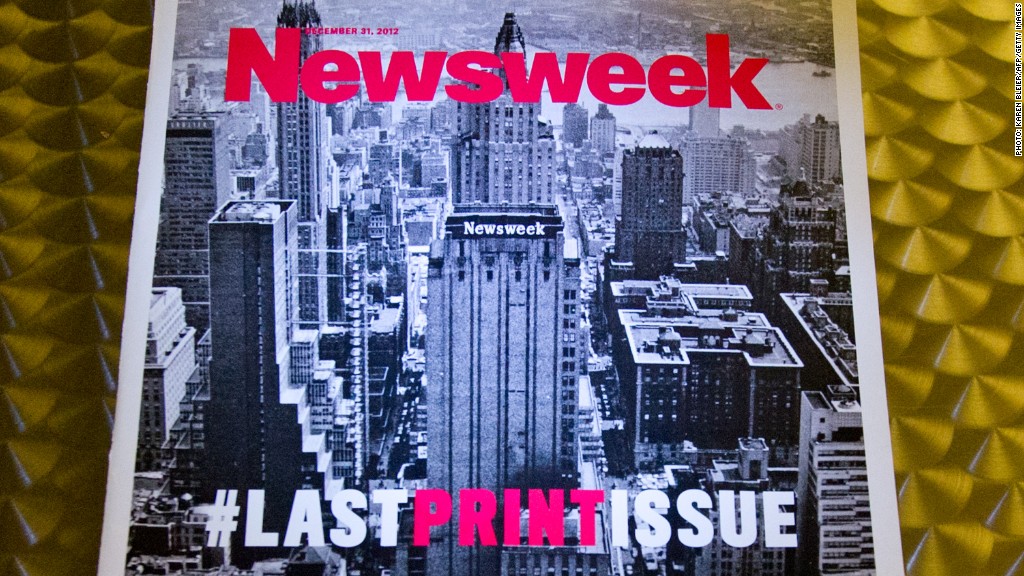
Newsweek's new owners think they can succeed at something its previous owners failed at: printing a weekly magazine in the United States.
IBT Media, the obscure media company that bought Newsweek in August, said Tuesday that it intends to revive the magazine's print edition early next year, possibly as soon as January.
The announcement is a remarkable twist in Newsweek's evolution, coming less than a year after its previous owner, IAC, stopped printing the magazine. The brand was basically left for dead -- but now the cover of IAC's final edition, with the phrase "#LastPrintIssue" rendered as a Twitter hashtag, seems decidedly premature.
First reported by the New York Times, IBT Media's decision is at odds with a general magazine industry move away from print and toward the Web, at least when it comes to the kind of news coverage that the Newsweek brand is known for.
On Monday, one of the nation's most esteemed weeklies, New York magazine, announced that it would soon shift to an every-other-week publishing schedule while beefing up its Web production. But some publishers continue to see money-making opportunities in print. Hours before the Newsweek announcement on Tuesday, the owner of The Week, a digest that summarizes news from other outlets, said that it had decided to slightly expand its publishing schedule, from 48 weeks a year to 51 weeks.
Related story: New York magazine to go bi-weekly
The new iteration of Newsweek will apparently have something in common with The Week: a reliance on paying customers rather than advertisers. The Week has ads, and Newsweek will too. But the bulk of The Week's revenues come from circulation.
Jim Impoco, who became Newsweek's editor in chief shortly after IBT Media acquired it, said "ads will be icing" for the reborn print edition of his magazine. Subscriber revenues will cover expenses, he said, because "we won't charge less than it costs to produce."
"The new owners, Johnathan Davis and Etienne Uzac, are digital natives who saw a great journalistic and commercial opportunity in print," Impoco added. "And I'm so glad they suggested it."
Related story: Sam Champion exits ABC for Weather Channel
Most of the print material will presumably be repurposed from Newsweek.com, the website that Impoco oversees, which includes a once-a-week online "magazine" that looks and feels a lot like a printed one. All of that is free currently. Enticing former Newsweek subscribers -- or brand-new readers -- to pay for it in print will be a stiff challenge.
But the new print edition will attract some attention, if only for its name and journalistic legacy. Publications like The Economist have proven that there is still some room in the marketplace for thoughtful recaps of the week's news.
Asked what readers of the previous Newsweek print edition would recognize about the new one, Impoco said, "The new Newsweek will be deeply reported and global, which is what it was when it first came out 80-odd years ago and is what it should be now."
The print edition of Newsweek was a long-time rival of Time. Time is published by Time Inc., a partner in CNNMoney with its fellow Time Warner unit CNN.
